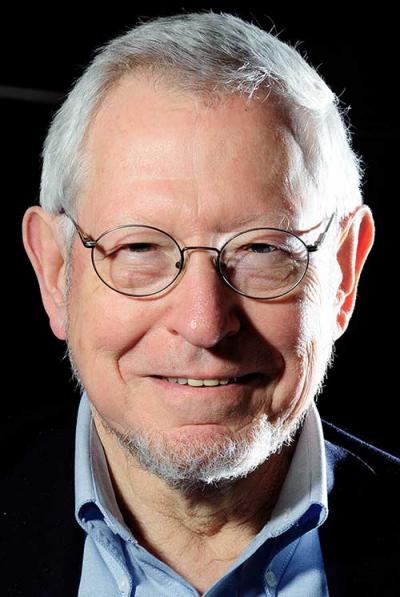/ Recently Commented
Is ICANN Staff Misleading the Board Into Violating Contractual Obligations to the U.S. Government?
 Recently, I had time to reflect on various matters after the alternator in my vehicle decided that the middle of a mountain pass was the appropriate time and place to go to that great big pick-and-pull scrapyard in the sky while leaving me stranded with no cell signal on the side of the road in the middle of nowhere. Until that point, I had been seriously considering applying to ICANN's Nominating Committee for one of the three open seats on ICANN's Board of Directors. more
Recently, I had time to reflect on various matters after the alternator in my vehicle decided that the middle of a mountain pass was the appropriate time and place to go to that great big pick-and-pull scrapyard in the sky while leaving me stranded with no cell signal on the side of the road in the middle of nowhere. Until that point, I had been seriously considering applying to ICANN's Nominating Committee for one of the three open seats on ICANN's Board of Directors. more
- Greg Thomas
- Comments: 1
- Views: 15,017
Digital Culture Wars: Donald Trump’s “Make America Great Again” and China’s Social Credit System
 We are on the cusp of a grave risk where unscrupulous groups with various agendas are using digital technologies to wage cultural war to stamp out dissent and gain control and power. The two most prominent recent examples are Donald Trump's "Make America Great Again" (MAGA) and China's Social Credit System (SCS). The following piece was prompted by work on the UDHR and Internet Governance series, for CircleID to deal with UDHR Article 27 and the role of culture, arts, and science in the life of the community. more
We are on the cusp of a grave risk where unscrupulous groups with various agendas are using digital technologies to wage cultural war to stamp out dissent and gain control and power. The two most prominent recent examples are Donald Trump's "Make America Great Again" (MAGA) and China's Social Credit System (SCS). The following piece was prompted by work on the UDHR and Internet Governance series, for CircleID to deal with UDHR Article 27 and the role of culture, arts, and science in the life of the community. more
- Klaus Stoll
- Comments: 3
- Views: 18,949
Universal Acceptance – Making the Internet Work for Everyone
 Back in 2014, to foster innovation and to better the choice in domain names, ICANN introduced new generic top-level domains through its New gTLD Program. It was a monumental move that enabled businesses, individuals, and communities across the globe to mark their presence on the Internet. Allowing users to be present digitally in their chosen language (non-ASCII characters and scripts) gave opportunities to local businesses, civil societies, and governments to better serve their communities. more
Back in 2014, to foster innovation and to better the choice in domain names, ICANN introduced new generic top-level domains through its New gTLD Program. It was a monumental move that enabled businesses, individuals, and communities across the globe to mark their presence on the Internet. Allowing users to be present digitally in their chosen language (non-ASCII characters and scripts) gave opportunities to local businesses, civil societies, and governments to better serve their communities. more
- Aman Masjide
- Comments: 3
- Views: 22,141
Multistakeholderism Is Working: A Short Series of Articles
 I was in a conversation with a close friend the other day, you know the kind where you have been friends for so long that you have endured each other experimenting with changed politics, evolving religion, and if you are unlucky, flirtations with multilevel marketing. We were discussing politics that day, which is not unusual given our ancient friendship and the recent change at the helm of the United States. more
I was in a conversation with a close friend the other day, you know the kind where you have been friends for so long that you have endured each other experimenting with changed politics, evolving religion, and if you are unlucky, flirtations with multilevel marketing. We were discussing politics that day, which is not unusual given our ancient friendship and the recent change at the helm of the United States. more
- Paul McGrady
- Comments: 2
- Views: 14,497
Is ICANN Running a Racket?
 On March 13, 2019, I published an article on CircleID, Portrait of a Single-Character Domain Name, that explored the proposed release and auction of o.com, a single-character .com domain name that was registered in 1993 and assigned to the Internet Assigned Numbers Authority (IANA) by Dr. Jon Postel. Although the National Telecommunications and Information Administration (NTIA) has since raised serious objections... more
On March 13, 2019, I published an article on CircleID, Portrait of a Single-Character Domain Name, that explored the proposed release and auction of o.com, a single-character .com domain name that was registered in 1993 and assigned to the Internet Assigned Numbers Authority (IANA) by Dr. Jon Postel. Although the National Telecommunications and Information Administration (NTIA) has since raised serious objections... more
- Greg Thomas
- Comments: 2
- Views: 19,623
Ending U.S. Government Amnesia About Its Legacy Internet Registries is in the Public Interest
 On July 2, 2002, Damien Cave published an interview on Salon.com with John Gilmore, "original 'cypherpunk' and all-around Internet supergeek," titled "It's time for ICANN to go." In this wide-ranging interview, Gilmore -- an early employee of Sun Microsystems who also co-founded Cygnus Software (acquired by Red Hat) and was an early supporter of the Electronic Frontier Foundation and the Internet Society (ISOC) -- offered blunt insight and eye-opening historical detail... more
On July 2, 2002, Damien Cave published an interview on Salon.com with John Gilmore, "original 'cypherpunk' and all-around Internet supergeek," titled "It's time for ICANN to go." In this wide-ranging interview, Gilmore -- an early employee of Sun Microsystems who also co-founded Cygnus Software (acquired by Red Hat) and was an early supporter of the Electronic Frontier Foundation and the Internet Society (ISOC) -- offered blunt insight and eye-opening historical detail... more
- Greg Thomas
- Comments: 3
- Views: 14,154
Busting Domain Name Secondary Market Myths
 The Secondary Market in domain names plays a critical role in Internet commerce yet is often misunderstood. This article will attempt to clear up some of the myths that frequently arise when discussing the Secondary Market... Domain name investors are but one group participating in the thriving domain name Secondary Market, in which already registered domain names move from one owner to another. more
The Secondary Market in domain names plays a critical role in Internet commerce yet is often misunderstood. This article will attempt to clear up some of the myths that frequently arise when discussing the Secondary Market... Domain name investors are but one group participating in the thriving domain name Secondary Market, in which already registered domain names move from one owner to another. more
- Zak Muscovitch
- Comments: 6
- Views: 39,430
Quantifying the Benefits of Fiber
 Dr. Bento J. Lobo, an economist at the University of Tennessee at Chattanooga undertook a study to quantify the benefits of the municipally-owned fiber network in Chattanooga. Any citywide fiber network brings economic development to a community, but a municipally-owned system brings additional benefits because of the way that the business is more deeply integrated into the community. more
Dr. Bento J. Lobo, an economist at the University of Tennessee at Chattanooga undertook a study to quantify the benefits of the municipally-owned fiber network in Chattanooga. Any citywide fiber network brings economic development to a community, but a municipally-owned system brings additional benefits because of the way that the business is more deeply integrated into the community. more
- Doug Dawson
- Comments: 1
- Views: 8,718
An Institute to Combat DNS Abuse
 Over the last few years, it's become clear that abuse of the Domain Name System -- whether in the form of malware, botnets, phishing, pharming, or spam -- threatens to undermine trust in the Internet. At Public Interest Registry, we believe that every new .ORG makes the world a better place. That means anything that gets in the way of that is a threat, and that includes DNS Abuse. more
Over the last few years, it's become clear that abuse of the Domain Name System -- whether in the form of malware, botnets, phishing, pharming, or spam -- threatens to undermine trust in the Internet. At Public Interest Registry, we believe that every new .ORG makes the world a better place. That means anything that gets in the way of that is a threat, and that includes DNS Abuse. more
- Graeme Bunton
- Comments: 4
- Views: 39,757
Facebook Is Right to Call the Australian Government Bluff
 As mentioned in previous analyses, the way that the Government has approached its battle with the digital giants has been flawed from the beginning. True, its tough stand had made Google pay media companies well above what these companies would have been able to negotiate individually with Google, but the fundamentals of why these battles are taking place are still unchanged. more
As mentioned in previous analyses, the way that the Government has approached its battle with the digital giants has been flawed from the beginning. True, its tough stand had made Google pay media companies well above what these companies would have been able to negotiate individually with Google, but the fundamentals of why these battles are taking place are still unchanged. more
- Paul Budde
- Comments: 2
- Views: 9,063
ECFiber: Building a Fiber-to-Premises Network in the Rural United States
 Nestled in the northeastern part of the United States is the small state of Vermont, the 14th State to join the United States in 1789. Its name comes from the French, in which 'vert montagne' means 'green mountain.' and it is known as the Green Mountain state. With only about 625,000 inhabitants, it is the 45th state out of 50 in size, and 49th of 50 in number of people, even less populated than Alaska. more
Nestled in the northeastern part of the United States is the small state of Vermont, the 14th State to join the United States in 1789. Its name comes from the French, in which 'vert montagne' means 'green mountain.' and it is known as the Green Mountain state. With only about 625,000 inhabitants, it is the 45th state out of 50 in size, and 49th of 50 in number of people, even less populated than Alaska. more
- George Sadowsky
- Comments: 2
- Views: 13,145
Now We Know Why It’s Hard to Get a .COM
 As executive director of CALinnovates, an organization that advocates for innovation and startups, as well as a new business owner myself, I know how important a .COM domain name can be to a new company's online presence and marketing strategy. That's why I read with interest a new Boston Consulting Group report on how the .COM market is changing. I have a much better understanding of why new businesses find it hard to get relevant .COM domain names. more
As executive director of CALinnovates, an organization that advocates for innovation and startups, as well as a new business owner myself, I know how important a .COM domain name can be to a new company's online presence and marketing strategy. That's why I read with interest a new Boston Consulting Group report on how the .COM market is changing. I have a much better understanding of why new businesses find it hard to get relevant .COM domain names. more
- Mike Montgomery
- Comments: 11
- Views: 25,973
What Are the Connected Assets of Confirmed Fake FBI Domains?
 Two months ago, the Federal Bureau of Investigation (FBI) alerted the public to a list of domains that could easily be mistaken to be part of its network. The list of artifacts contained a total of 92 domain names, 78 of which led to potentially malicious websites, while the remaining 14 have yet to be activated or are no longer active as of 23 November 2020. more
Two months ago, the Federal Bureau of Investigation (FBI) alerted the public to a list of domains that could easily be mistaken to be part of its network. The list of artifacts contained a total of 92 domain names, 78 of which led to potentially malicious websites, while the remaining 14 have yet to be activated or are no longer active as of 23 November 2020. more
- Jonathan Zhang
- Comments: 2
- Views: 37,415
3 Most Scary Attacks that Leaked Personally Identifiable Information (PII) of Millions of Users
 Cybercriminals are increasingly targeting Personally Identifiable Information (PII). The reason being "data is the new gold" in this digital world, and the more sensitive some data is, the more value it has. There is no more sensitive data than personally identifiable information because it contains enough information to identify you digitally. Examples of personally identifiable information include name, email, contact number, address, social security number, tax file number, banking or financial information, and more such data that helps identify you. more
Cybercriminals are increasingly targeting Personally Identifiable Information (PII). The reason being "data is the new gold" in this digital world, and the more sensitive some data is, the more value it has. There is no more sensitive data than personally identifiable information because it contains enough information to identify you digitally. Examples of personally identifiable information include name, email, contact number, address, social security number, tax file number, banking or financial information, and more such data that helps identify you. more
- Evan Morris
- Comments: 1
- Views: 37,265
Emergence, Rise and Fall of Surveillance Capitalism, Part 1: Emergence
 One of the consequences of the Jan 6th events is a renewed attention towards Surveillance Capitalism as a key doctrine undermining democracy. This 2-part series of articles discusses the emergence, rise, and fall of Surveillance Capitalism under the premise that the better we understand the danger at the door, the better we are able to confront it. more
One of the consequences of the Jan 6th events is a renewed attention towards Surveillance Capitalism as a key doctrine undermining democracy. This 2-part series of articles discusses the emergence, rise, and fall of Surveillance Capitalism under the premise that the better we understand the danger at the door, the better we are able to confront it. more
- Klaus Stoll
- Comments: 1
- Views: 13,829